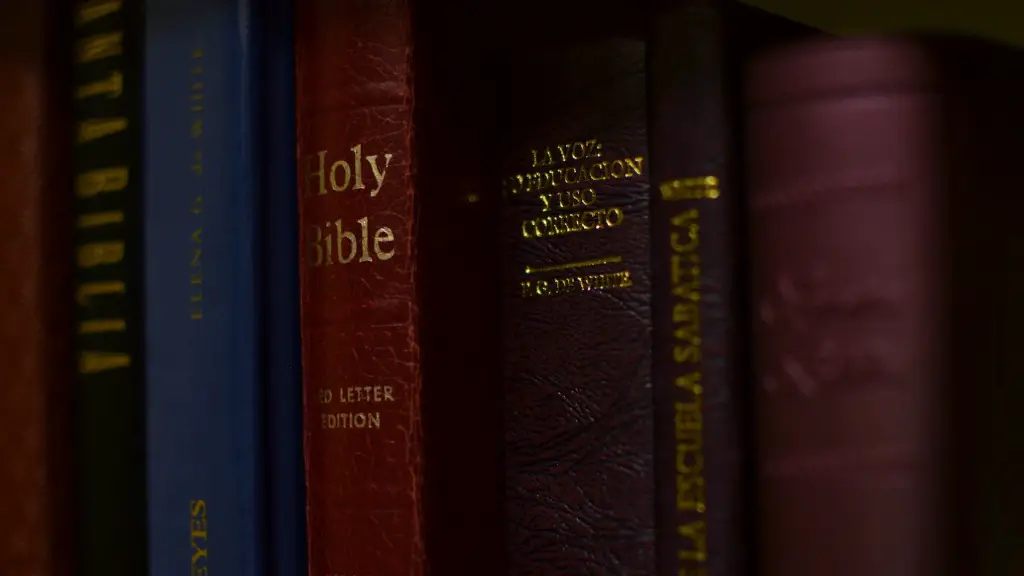Overview
The Bible gives us many examples of uncleanliness and how it differs from cleanliness. Uncleanliness has a deep spiritual meaning, and it is often used to represent moral and spiritual impurity or wickedness. The Bible puts a huge emphasis on being clean, both mentally and physically, but how does this idea of cleanliness translate into our everyday lives?
The Torah Directive
The term “unclean” first appears in the Torah, the first five books of the Bible. These books contain the written laws of God that the Israelites were required to follow, with uncleanliness being seen as an affront to God. Although the Torah does not specifically state what uncleanliness is, it does include many laws that define it.
For example, certain objects, animals, or people were considered unclean and forbidden to be used for worship or offerings to God. This includes objects that had been made for the purpose of magical rituals, and people who were considered to be ceremonially or morally unclean. According to Jewish traditions, an unclean person is not allowed to participate in any religious activity or ceremony.
Unclean Animals
Animals were also considered to be either clean or unclean, with the unclean animals being prohibited from sacrifice or consumption. These animals include pigs, camels, rabbits, and bats, all of which are seen as being less worthy of being offered to God. Additionally, any animal that ate off the ground, such as a scavenger, was considered to be unclean and not suitable for use in any religious ceremony.
Uncleanliness of the Leper
One of the most well-known examples of uncleanliness in the Bible is found in the description of leprosy. A leper was considered to be spiritually and physically unclean and was prohibited from participating in religious ceremonies. The Bible also teaches that anyone who was in contact with a leper was to be considered unclean and was not allowed to take part in any religious activity.
Unclean Food
Certain foods were seen as being unclean, and the Israelites were instructed to avoid them. Many of these foods were prohibited because of their danger to human health, such as pork and seafood. Other foods were prohibited because of their association with pagan worship, such as blood and certain types of meat that had been sacrificed to idols.
Modern Day Uncleanliness
In the modern world, uncleanliness can be seen as an indication of neglect or laziness. Living in unclean surroundings can be a sign of physical and mental decline, and it can lead to various health issues. Additionally, uncleanliness can indicate a lack of respect for one’s self and others, as well as a wandermind and avoidance of responsibilities.
Uncleanliness and Hygiene
The Bible teaches that physical and spiritual cleanliness are essential for a healthy life. Physical cleanliness is achieved by regularly bathing and keeping the body’s exterior clean. Spiritual cleanliness is reached by following God’s commands, avoiding thoughts and actions that do not honor God, and by prayer.
Uncleanliness in Relationships
Uncleanliness can also refer to moral or spiritual impurity in relationships. In today’s society, this may manifest itself in unrighteous behavior such as gossiping, lying, cheating, and manipulating others. The Bible teaches that these activities are not pleasing to God, and they will ultimately lead to spiritual decline.
Uncleanliness in Thoughts and Actions
The Bible strictly prohibits any thoughts or actions that are not pleasing to God, and it is essential that we strive to keep our thoughts and actions clean. This includes avoiding sinful behavior, such as pride, lust, envy, and greed, as these activities all lead to uncleanliness. Additionally, thought patterns such as self-pity, bitterness, and unforgiveness, should also be avoided.
Living a Clean Life
Living a clean life is essential if we want to honor God and achieve spiritual growth. This means that we must strive for physical and mental cleanliness, as well as refraining from thoughts and actions that do not honor God. Additionally, we must avoid relationships and activities that could lead to spiritual impurity, and remember that it is ultimately up to us to live a clean and holy life.


